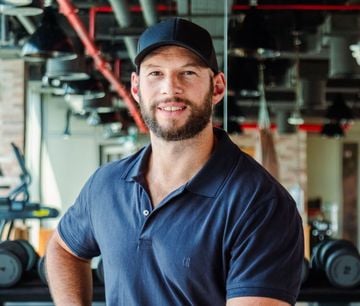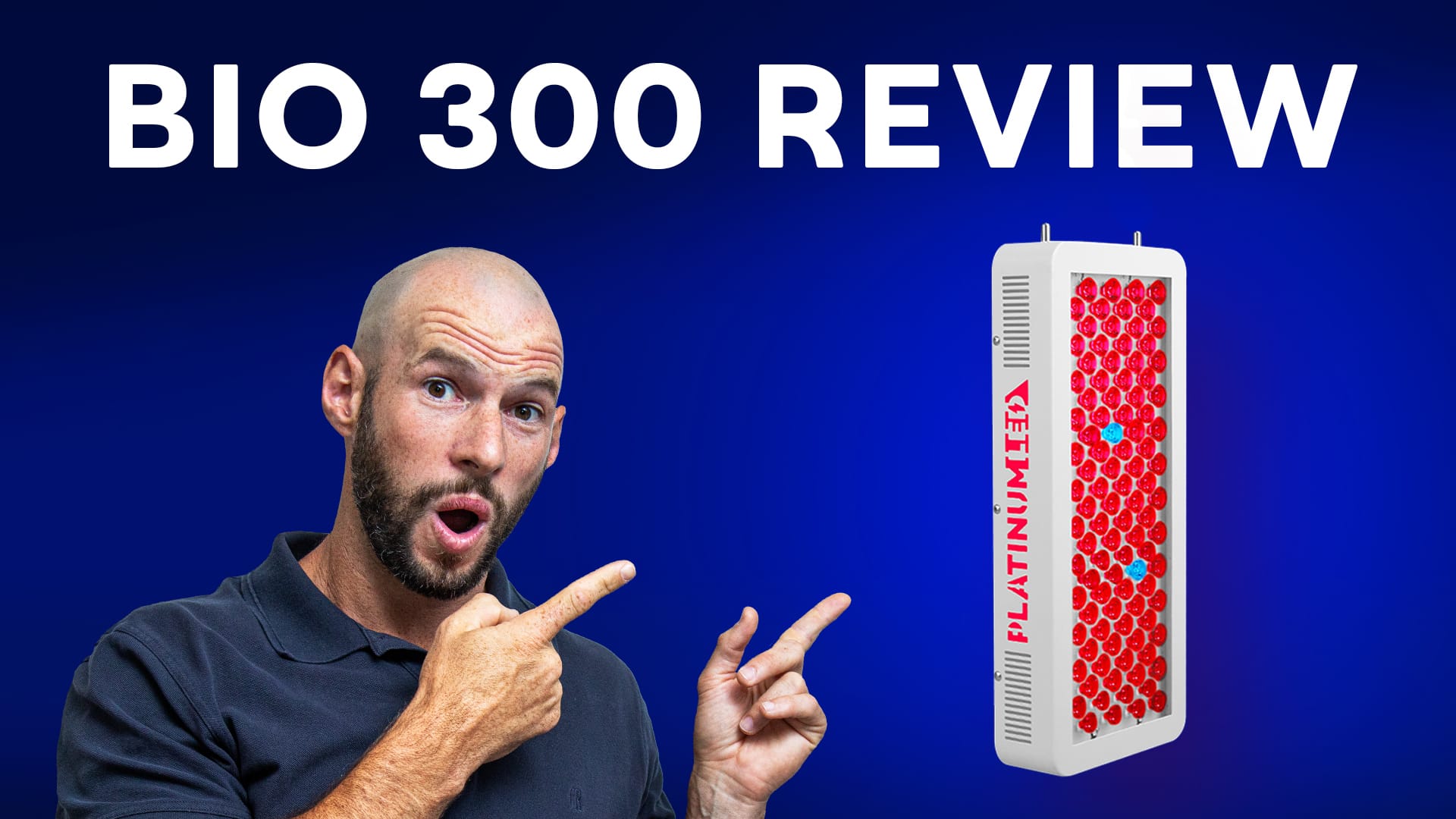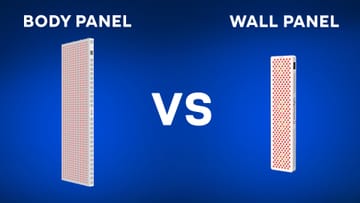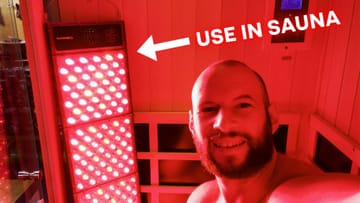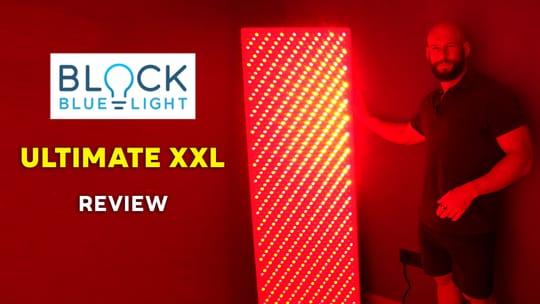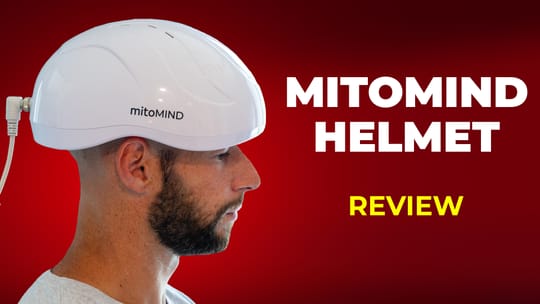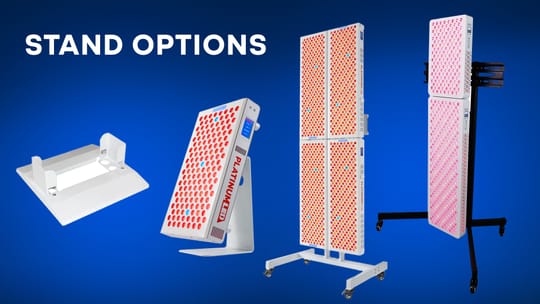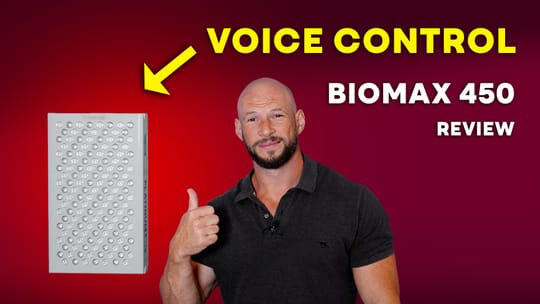PlatinumLED is widely recognized as one of the leading brands in the market. The BIO 300 is the smallest and most affordable panel in its lineup. But with so many options available today, how does the BIO 300 compare?
This review will examine its features, performance, and value and explore alternatives that may suit your needs.
PlatinumLED's BIO panel vs. BioMax Panel
PlatinumLED offers two main product lines: the budget-friendly BIO range and the premium BIOMAX series. The BIO range also includes the 450 (150 LEDs) and 600 (200 LEDs) models for those who need more power.
The BIO 300, part of the BIO range, skips the fancy extras found in its more expensive counterpart. Forget about touchscreens, remote controls, or apps. This straightforward design has existed for years, targeting budget-conscious users who seek effective red light therapy without a hefty price tag.
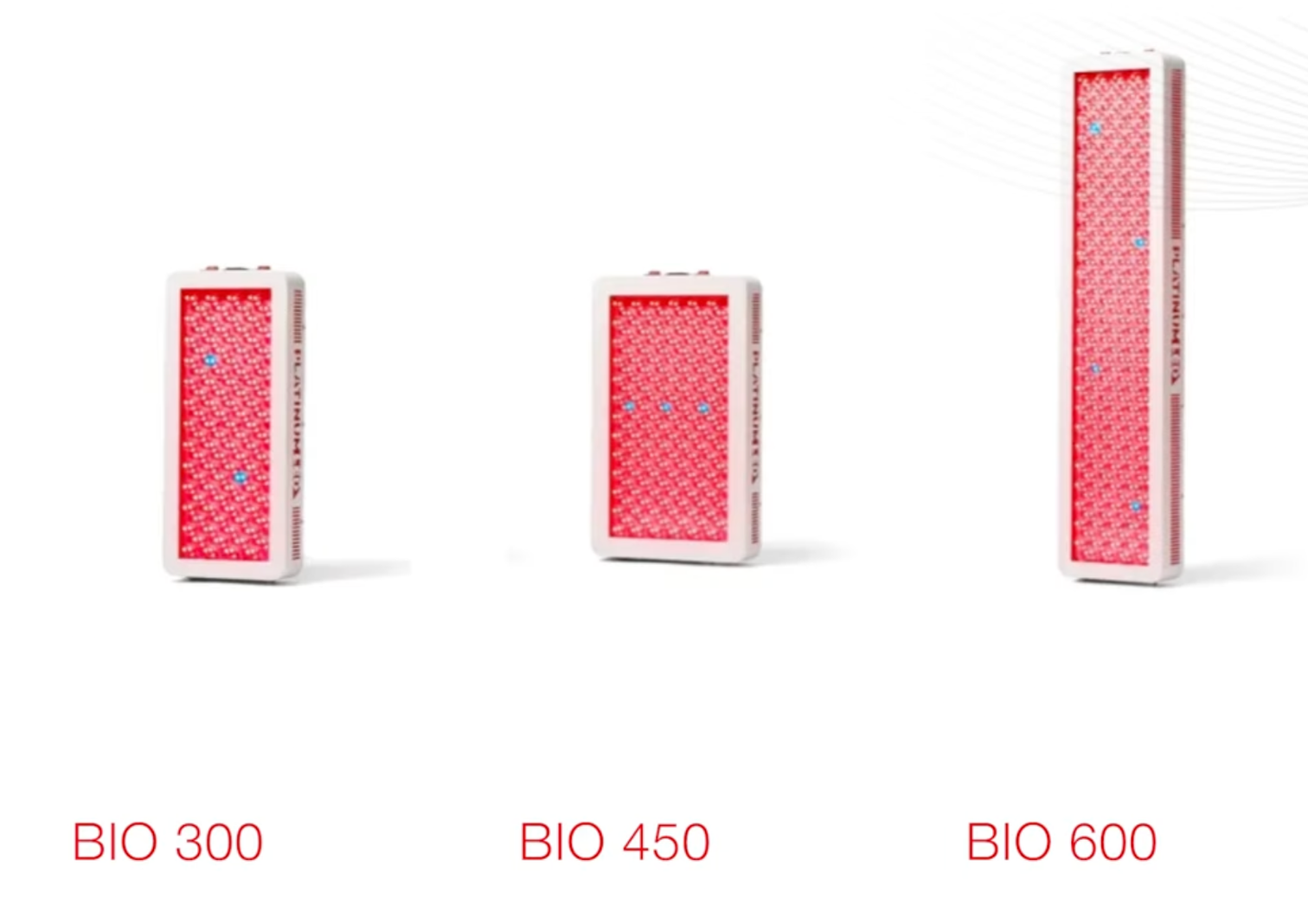
Features and Design
The BIO 300 is a straightforward device. It has two large switches at the bottom—one for red light and another for near-infrared (NIR) and blue light. PlatinumLED's BIOMAX panels also have blue light.
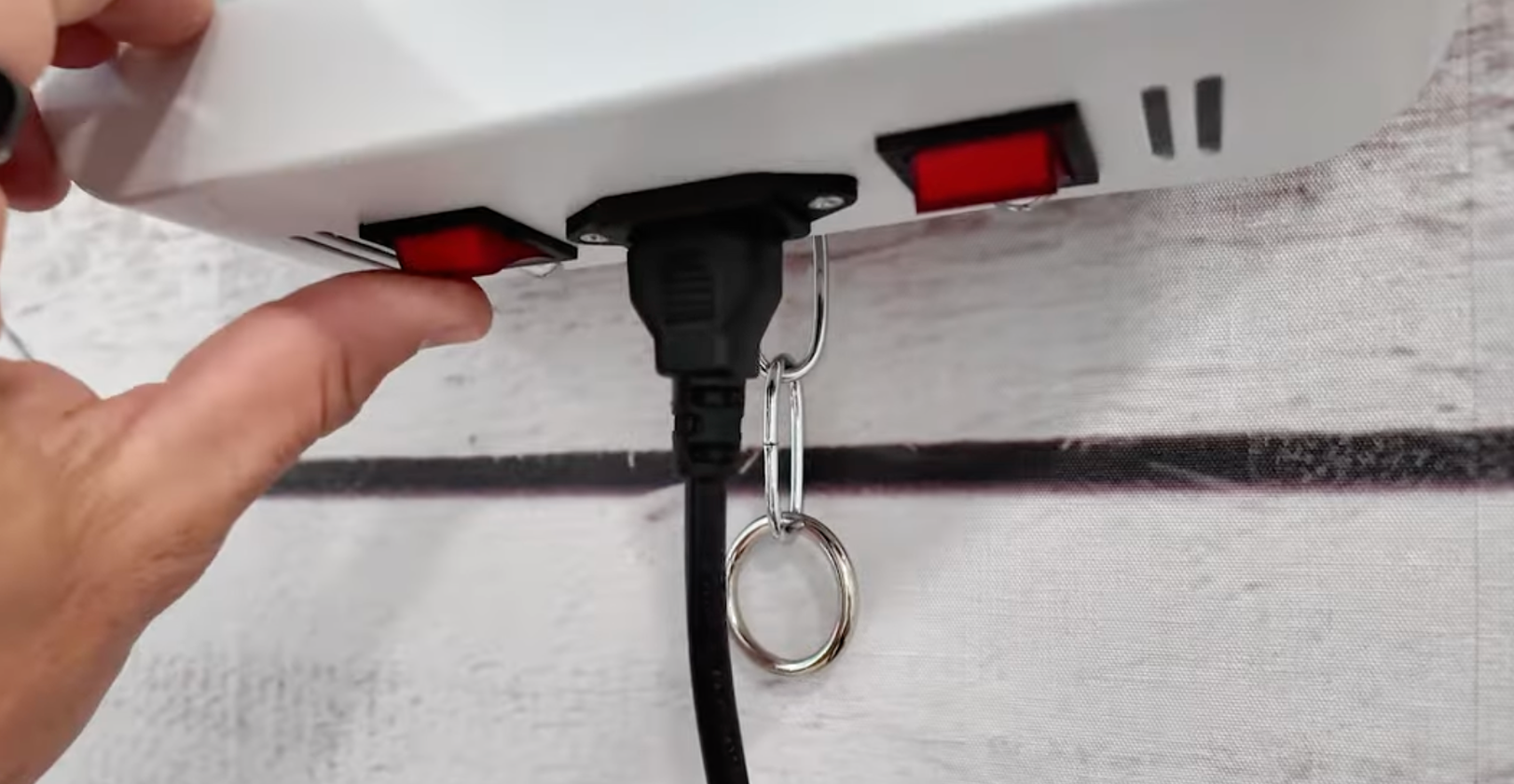
Here's what you'll find in the box:
- User manual
- Eye protection gear
- Door hanging hooks and cables
- Chain for adjustable hanging
The BIO 300 measures 19 inches tall, 9 inches wide, and 3 inches deep. Its wide metal border gives it a robust, industrial look. Inside, it houses 100 LEDs, emitting three wavelengths:
- Blue light at 480 nanometers (nm)
- Red light at 660 nm
- Near-infrared light at 850 nm
Wavelengths
The results were impressive when I tested the panel's wavelengths using a spectrometer.
The red light peaked at 658 nm, while the near-infrared hit 850 nm. Blue light came in slightly lower than claimed, peaking at 466 nm. Notably, only 2% of the LEDs emit blue light, so its coverage is minimal.
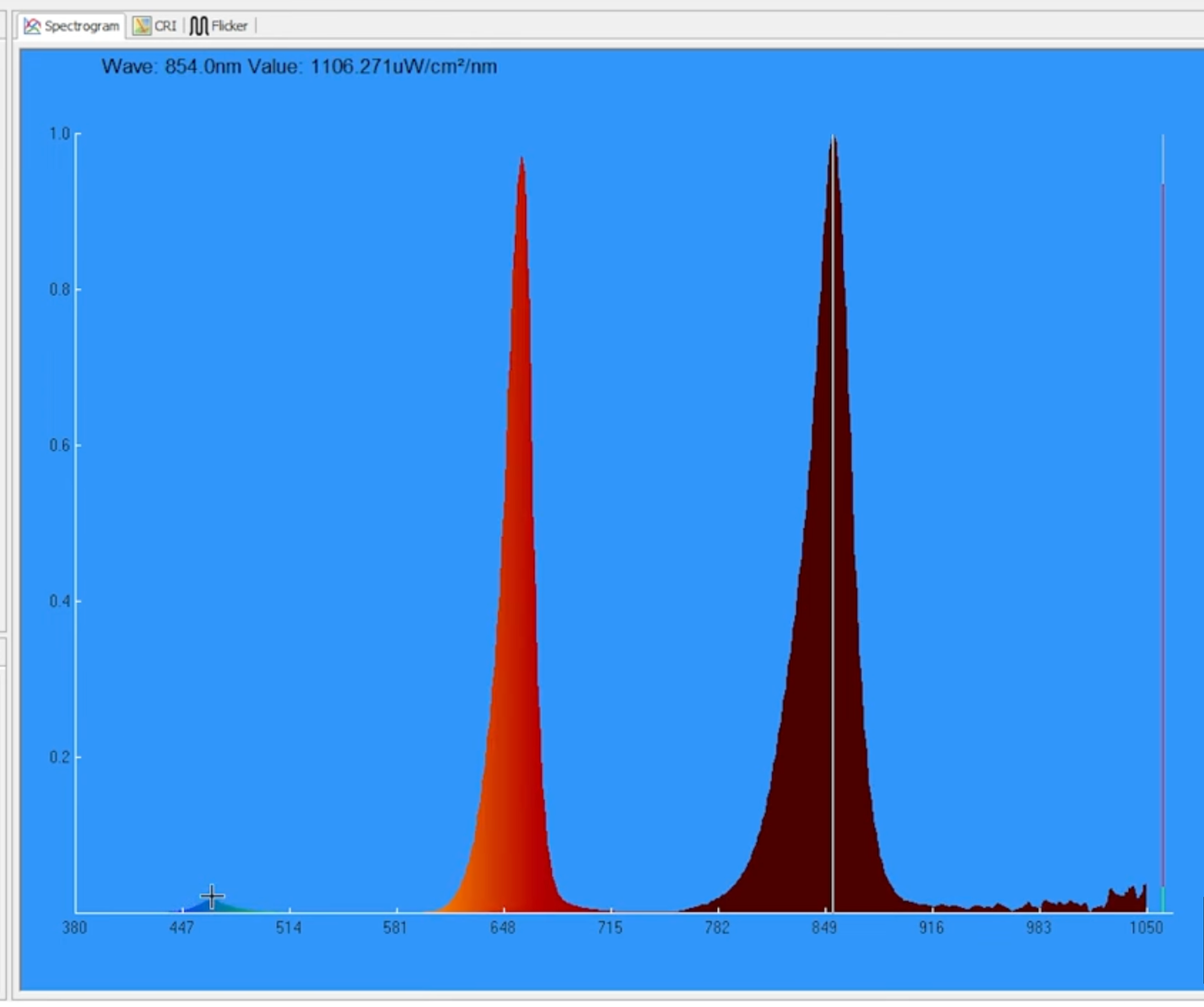
Irradiance
In terms of power output, the BIO 300 delivers solid numbers:
- Peak irradiance at 6 inches: 86 mW/cm²
- Average irradiance across the panel: 59 mW/cm²
- Total wattage output: 33 watts
While these figures are good, they're not groundbreaking. PlatinumLED hasn't officially published the BIO 300's power output, possibly due to ongoing efforts to standardize testing methods.
Using the Light Therapy Insiders Shopping Tool, you can compare the BIO 300 costs', power output and more with other tabletop panels
EMF and Sound
The BIO 300 scored 0.26 micro Tesla on the EMF front, placing it in the orange category. While not alarmingly high, this is more than the BIOMAX panels and some competitors. Sound levels measured at 53.5 decibels, which could be bothersome for those sensitive to noise.
Price and Value
The BIO 300 costs $399, but ordering through my link can save you 5%, bringing the price down to $380. Shipping is free within the U.S., but international buyers may face high fees—over $100 for delivery to Australia.
When factoring in its performance, the cost per watt of therapeutic red light is approximately $11.50, making it a decent value for a budget panel.
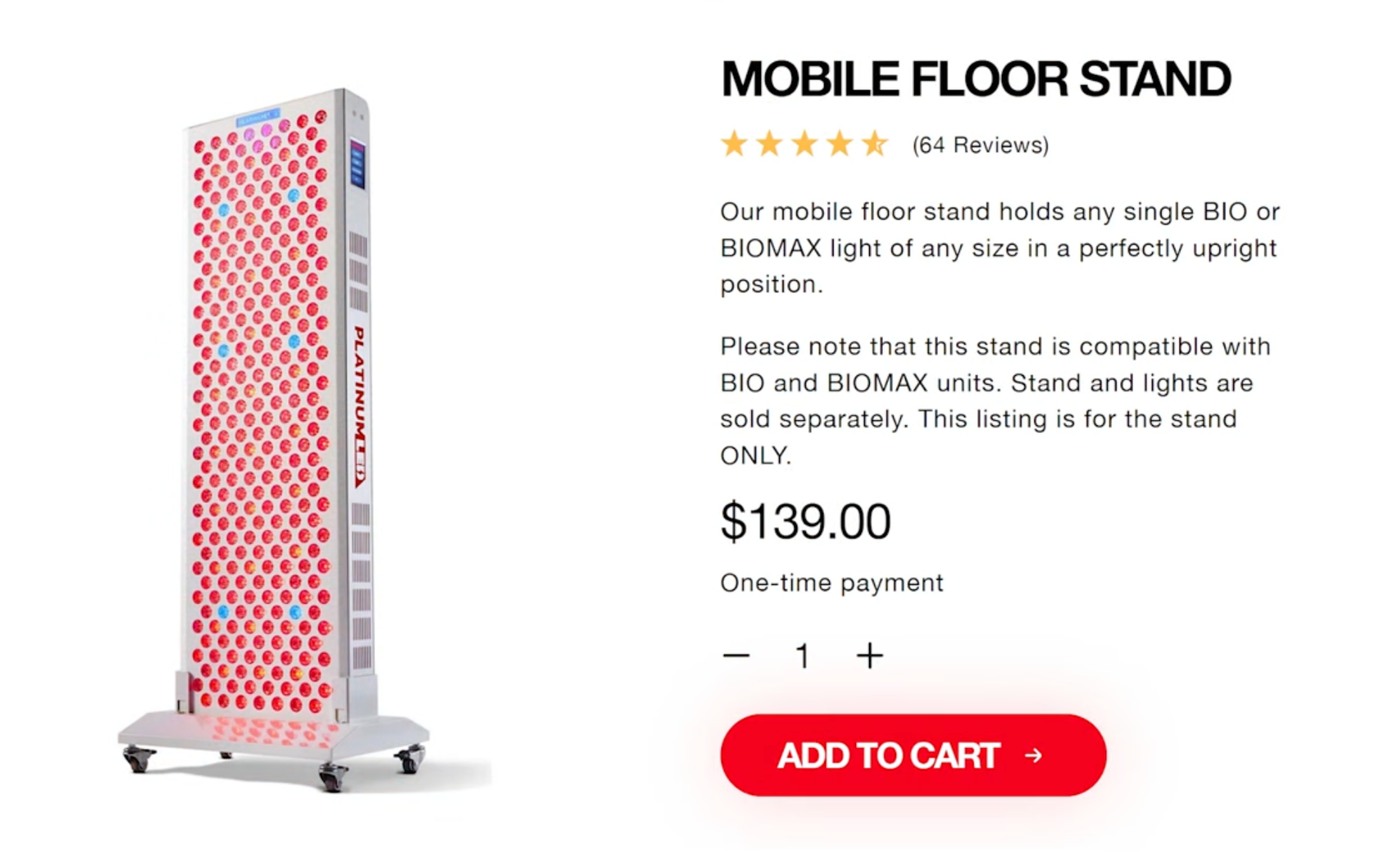
What I Don't Like About the BIO 300
The BIO 300 has a few drawbacks:
- Lack of Stands: The absence of tabletop stands makes it less versatile. You're limited to hanging it, which may not suit everyone.
- No Advanced Features: Unlike modern panels, it lacks timers, apps, remote controls, dimming, or modular connectivity.
- Limited Wavelengths: With just three wavelengths, it falls short compared to panels offering four to seven.
- Average Power Output: While adequate, it's not as impressive as other models in 2024.
- Higher EMF and Sound Levels might deter users who seek a quieter, lower-EMF panel.
- Fixed Blue LEDs: You can't turn off the blue light without disabling NIR.
- Industrial Design: Some may dislike its raw aesthetic and visible internal components.
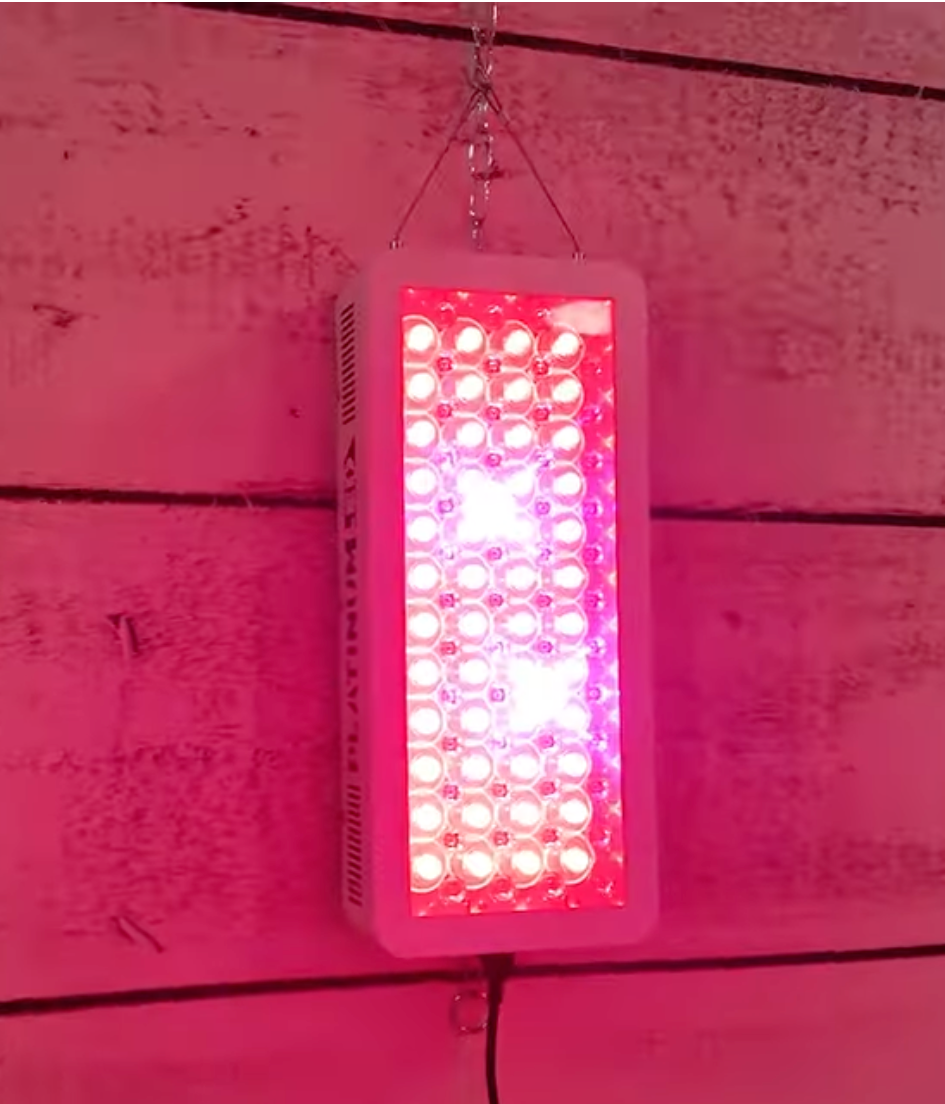
What I Like About the BIO 300
Despite its limitations, the BIO 300 has plenty to offer:
- Affordable Price: It's one of the cheapest panels from a reputable brand.
- Ease of Use: Simple switches make operation straightforward.
- Blue LEDs: Although minimal, they're a unique addition to this price range.
- FSA and HSA Approved: This makes purchasing more manageable for some users.
- Three-Year Warranty: Plus a 60-day return period, though restocking fees may apply.
Who Should Buy the BIO 300?
The BIO 300 is ideal for those seeking a simple, budget-friendly red light therapy panel. It's perfect for individuals who prioritize price over features and don't need advanced functionalities. However, international buyers may want to consider other options due to high shipping costs.
Alternatives to Consider
For those who want more features or better international shipping options, here are some alternatives:
- Hooga 300 and Hooga Pro 300 (code ALEX saves here!): These are similar in size and specs, often cheaper, but they do not have blue LEDs.
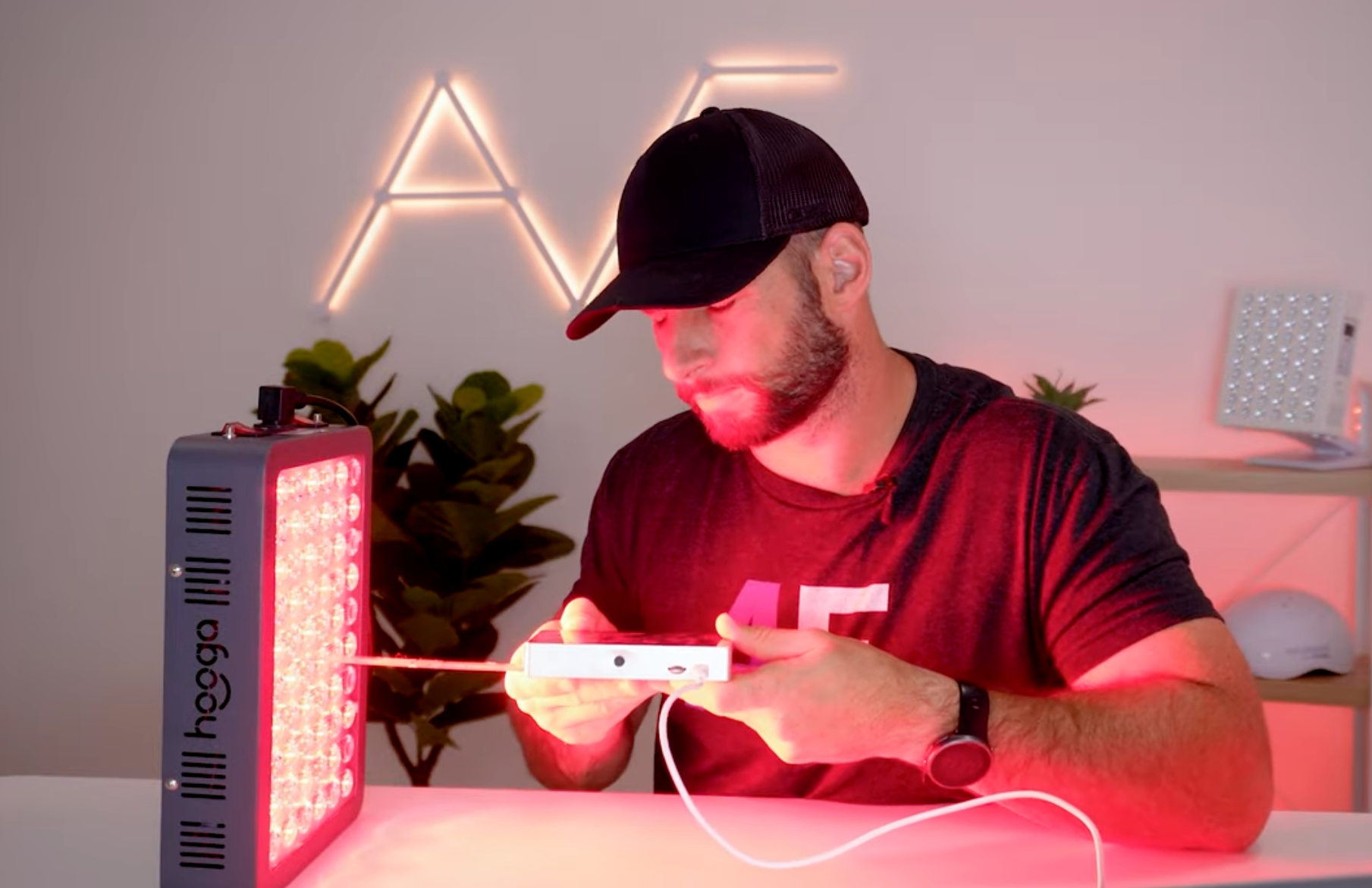
- Mito Red Light (code ALEXF5 saves) & Bestqool Panels (code ALEX saves): Budget-friendly with competitive specs.
- BIOMAX 300 (click the link for a discount code to be generated!): This premium panel offers superior performance, more wavelengths, and advanced features if you are willing to spend more.
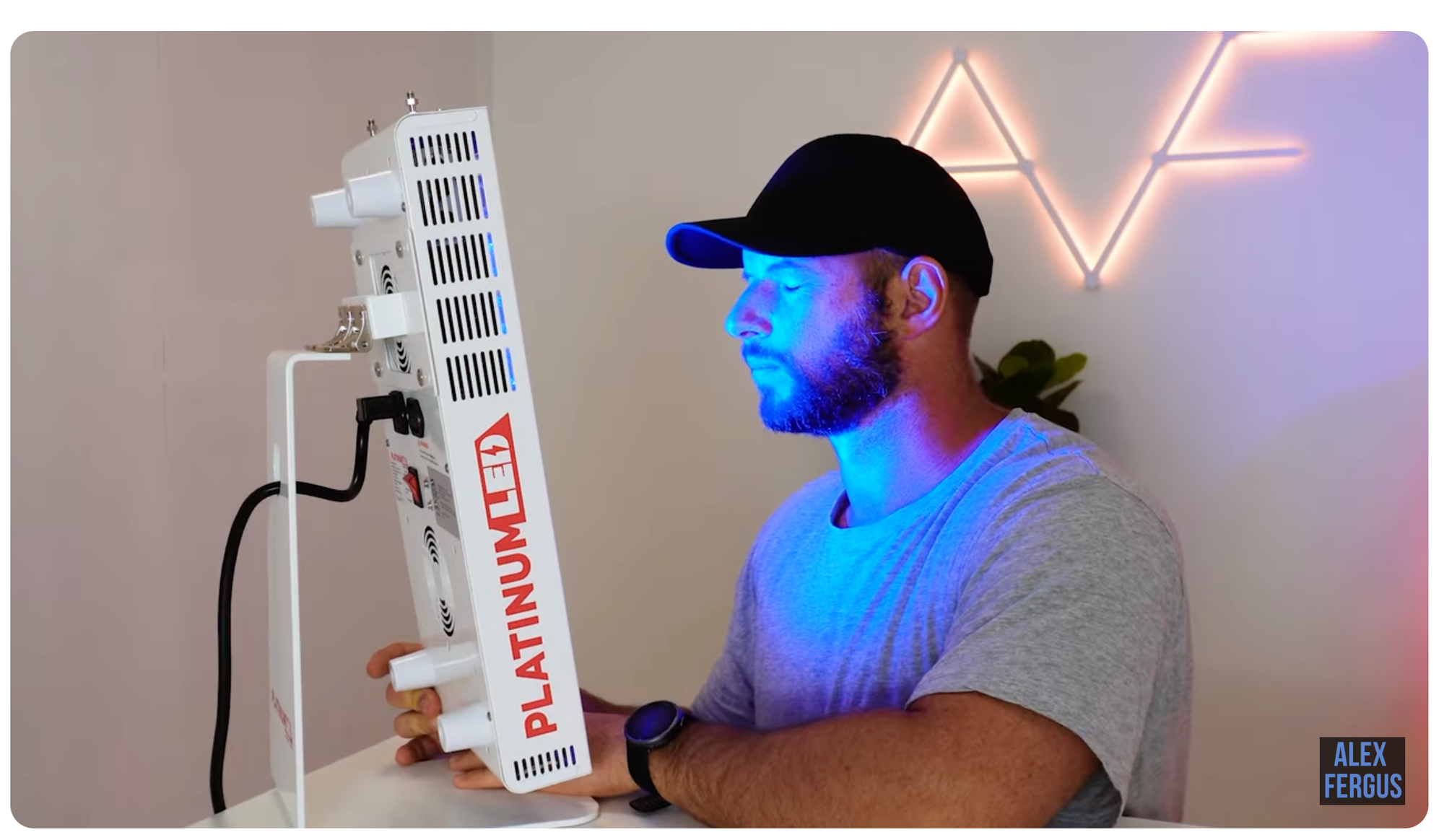
- Rojo & Block Blue Light Panels (code ALEX saves with both companies!) Excellent international shipping and solid performance.
Final Thoughts
The Platinum LED BIO 300 is a solid choice for affordable and effective red light therapy. While it's not the most powerful or feature-rich panel, it delivers good performance for the price. PlatinumLED has been around for a long time and is one of the best companies for red light therapy panels. If you value these qualities, the BIO 300 is worth considering.
If you're looking for a small, well-priced panel with blue LEDs, this is your best option unless you opt for the more expensive BIOMAX range. Similarly, if you want something simple without the bells and whistles—no apps, remotes, modular capability, or touchscreens—just reliable 660 and 850 nanometer light with easy-to-use switches, the BIO 300 fits the bill.
That said, it's not for everyone. International buyers might want to explore alternatives due to high shipping costs. For those in the U.S. seeking a straightforward, cost-effective solution, the BIO 300 is a dependable and budget-friendly choice.
Also you may want to check out my tabletop comparison video below for more options:
Items Mentioned In This Article:
🔥 For a PlatinumLED Bio 300, here: https://aferg.co/redled - a unique discount code is generated after you click the link
🔥 For a Rojo Refine, click here: https://aferg.co/rojo-rlt - code ALEX
🔥 For a Block Blue Light Powerpanel panel, click here: https://aferg.co/BlockBlueLight - code ALEX
🔥 If you want a Hooga panel, use code ALEX and the following link: https://aferg.co/hooga-rlt
🔥 For a Mito Red panel, click here: https://aferg.co/7d221, code ALEX5
🔥 For a BestQool panel, click here: https://aferg.co/Bestqool, code ALEX/
Found This Interesting? Look At These Articles:
⭐ Red Light Therapy Treatment Protocols: A Startling Revelation
⭐ Red Light Therapy For Upgrading Your Brain Health
⭐ The Effectiveness Of Light Therapy For Sleep Disorders
⭐ Red Light Therapy For Melasma & Hyperpigmentation: Everything You Need To Know
Consider These YouTube Videos As Well:
⭐ Best Red Light Therapy Panel 2024? EPIC Comparison
⭐ Best Red Light Therapy Body Panels 2024: HUGE Comparison!
⭐ I Found The Best Travel Red Light Therapy Panel!
⭐ Hooga HG300 Review - BareBones Red Light Therapy!
This blog post was written by Alex Fergus. Alex is a ISSN Sports Nutrition Specialist, Fitness Professional and certified Superhuman Coach who continues to expand his knowledge base and help people across the world with their health and wellness. Alex is recognized as the National Record Holder in Powerlifting and Indoor Rowing and has earned the title of the Australian National Natural Bodybuilding Champion. Having worked as a health coach and personal trainer for over a decade, Alex now researches all things health and wellness and shares his findings on this blog.
